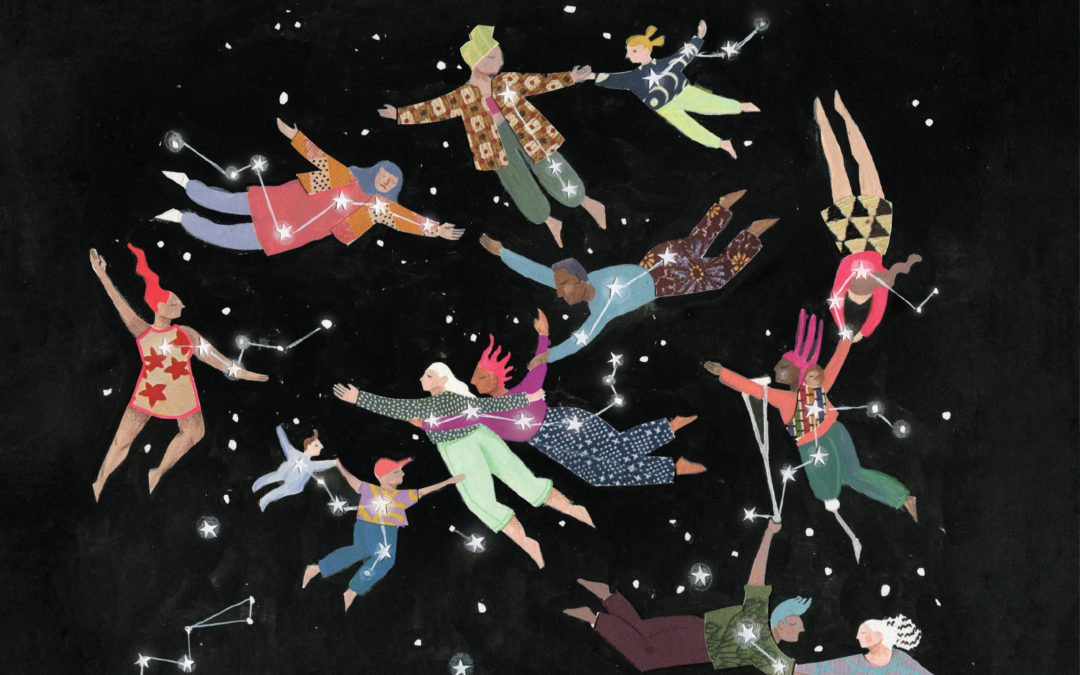by Sarah Carson
“It’s strep throat,” the doctor said.
It was 7:42 p.m. on a Thursday night, and my mother, my 2-year-old daughter and I were sitting in the urgent care examination room.
We were going on vacation in just two days. Before then, I needed to read about 30 pages of articles for the magazine. My email inbox was overflowing. My refrigerator was empty. Nearly every sock I owned was dirty. So, of course, my daughter’s sniffling and aching couldn’t just be a cold. That would have been too easy.
Before the doctor had even called the antibiotic into our pharmacy, I was running through the list of people to call: There was my boss, who’d need to know I probably wasn’t going to read all those pages. There was my daughter’s day care, which would have to tell other parents to watch for signs of fever and sore throat. There was my family, who perhaps would not want to vacation with an ailing toddler.
This is the way my mind operates. When presented with a challenge, I start planning, calculating, trying to move forward. So often I forget one of the most important steps in the process, but not this time. I turned to my mother. “What do I do now?” I asked.
“Sometimes God’s call is direct and easy to discern,” Kathryn A. Kleinhans writes in this issue (p. 22). “But often it is others—our calling networks—who help us understand God’s call in and for our lives.”
In the first sessions of Gather’s four-part Bible study—“We are called!”—about vocation, we’ve seen how God calls us to tasks big and small, in the church and in the world, in our comfort zone and outside of it. This issue’s fourth and final session adds to that understanding the importance of others in the process of discerning what it is that God is asking of us.
Sometimes the path forward seems obvious, but Kleinhans reminds us, “Our calling as Christians is not to have all the answers.”
From Jesus’ first disciples to today’s pastors and lay leaders, Christians have a long history of finding our way in the world together. Even when we seem separated by distance or time or ideology, our coming together is an essential part of how God works in us.
“Today there is less togetherness, but we are no less connected to one another,” Jordan Miller- Stubbendick writes (p. 30). In the story of Christ’s life, death and resurrection, we share an understanding of God’s plan for our lives. “In the same way that God enlivened and brought resurrected life to a valley of dry bones, God will breathe life into each of us and the church,” Twila Schock writes (p. 10).
That Thursday, my mother offered to wait in the car with my daughter while I picked up the prescription and a package of popsicles to soothe her throat. When I called my boss the next day, she helped me prioritize, to see a path through all the work piling up on my desk. When I called the day care, my daughter’s caregiver urged me not to worry and shared stories of times her children had become ill at inconvenient times. She helped me realize this all would pass.
“During those times when the light seems dim, we can also turn to others who can listen to or sit with us in the darkness,” Violet Cucciniello Little writes (p. 34). “In community, we most clearly come to know ourselves as made in the image of God.”
Sarah Carson is managing editor of Gather.
This article is from the April 2020 issue of Gather magazine. To read more like it, subscribe to Gather.
Seen. Heard. Welcomed.
Do you ever go to church hoping you have enough snacks and “stuff” to keep your child quiet and...
Redeeming grace
Coupons, rainchecks and rebates were my dad’s way of saving money on groceries and other household...
Holding to God’s promise
When my husband, Joe, and I moved into our first house In May 2014, we spied squash vines growing...






I read my magazine cover to cover. Thank you. I could relate that we live in seclusion now in a retirement center and last week our pastor called us on our cell phone. “Come to your window,” she said. We are on the third floor and there she was talking to me on her cell phone. We had a wonderful visit. Our pastors also have a morning meditation on the computer. They are a blessing in every way. Elaine Rodning, Tacoma, WA